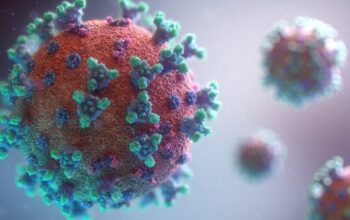The new ‘IHU’ variation of the coronavirus, which turned into found in France overdue final month, isn’t always spreading a ways sufficient to be one in all fundamental concerns, a brand new examine has observed. Though the research withinside the behaviour of the brand new stress remains in a completely early stage, researchers have observed little or no to elevate concern.
The examine, but to be peer-reviewed, has been posted on MedRxiv. In it, the researchers stated that “it’s far nevertheless early to take a position at the IHU editions because the wide variety of instances is extraordinarily low”.
Earlier this week, then World Health Organization (WHO) additionally stated that the ‘IHU’ variation has now no longer end up lots of a risk as of now.
The new variation turned into first diagnosed in November and has been on WHO’s radar for the reason that then. It has to date now no longer been labelled as a ‘variation below research‘ via way of means of the worldwide fitness body.
The modern day examine has, however, counseled retaining an eye fixed at the ‘IHU’ variation.
For now, the world’s recognition is at the Omicron variation, that is main to a surge withinside the coronavirus disease (Covid-19) contamination throughout the world. The United States and Europe are badly hit via way of means of the Omicron stress.
The IHU variation has forty six mutations and 37 deletions in its genetic code, greater than Omicron. Many of those have an effect on the spike protein.
The variation is a sub-lineage of the B.1.640 and its discovery turned into introduced via way of means of researchers from Méditerranée Infection in Marseille, a part of France’s Instituts hospitalo-universitaires (IHU, or University Hospital Institutes) – as a result the name. It has been categorised as B.1.640.2.
The IHU variation turned into found in November, in a pattern of a person who visited Cameroon in Africa on a three-day trip.
He started out experiencing breathing signs and turned into examined for Covid-19. The pattern lower back positive, with the presence of the B.1.640.2 variation.
A localised unfold of the contamination turned into stated in France and attributed to the IHU stress, Vinod Scaria, a scientist of Delhi’s Institute of Genomic and Integrative Biology, stated on Twitter that there’s no evidence of that.
The B.1.640, meanwhile, isn’t always new. According to outbreak.info, it turned into first detected on January 1, 2021, and four hundred infections were diagnosed until now.



